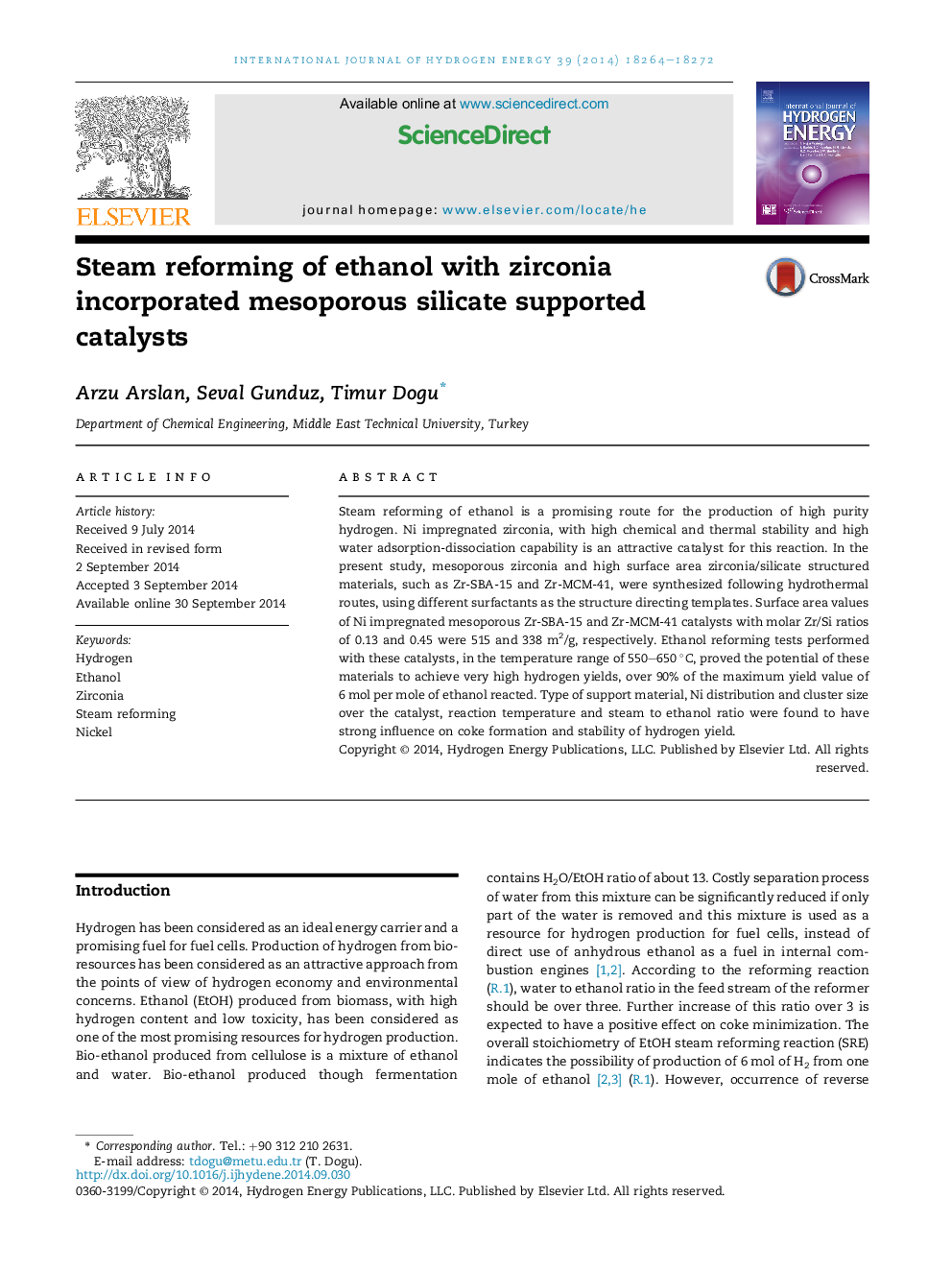| Article ID | Journal | Published Year | Pages | File Type |
|---|---|---|---|---|
| 1280836 | International Journal of Hydrogen Energy | 2014 | 9 Pages |
•Mesoporous zirconia/silica is a highly stable support for Ni based catalysts.•Ordered mesoporous Zr-SBA-15 and Zr-MCM-41 were successfully synthesized.•Ethanol reforming gave very high and stable H2 yield over Ni@Zr-SBA-15 at 600 °C.•Mg2+ incorporation decreased water dissociation capability of zirconia.•Support type, steam/ethanol ratio and temperature influenced coke formation.
Steam reforming of ethanol is a promising route for the production of high purity hydrogen. Ni impregnated zirconia, with high chemical and thermal stability and high water adsorption-dissociation capability is an attractive catalyst for this reaction. In the present study, mesoporous zirconia and high surface area zirconia/silicate structured materials, such as Zr-SBA-15 and Zr-MCM-41, were synthesized following hydrothermal routes, using different surfactants as the structure directing templates. Surface area values of Ni impregnated mesoporous Zr-SBA-15 and Zr-MCM-41 catalysts with molar Zr/Si ratios of 0.13 and 0.45 were 515 and 338 m2/g, respectively. Ethanol reforming tests performed with these catalysts, in the temperature range of 550–650 °C, proved the potential of these materials to achieve very high hydrogen yields, over 90% of the maximum yield value of 6 mol per mole of ethanol reacted. Type of support material, Ni distribution and cluster size over the catalyst, reaction temperature and steam to ethanol ratio were found to have strong influence on coke formation and stability of hydrogen yield.
Graphical abstractFigure optionsDownload full-size imageDownload as PowerPoint slide
